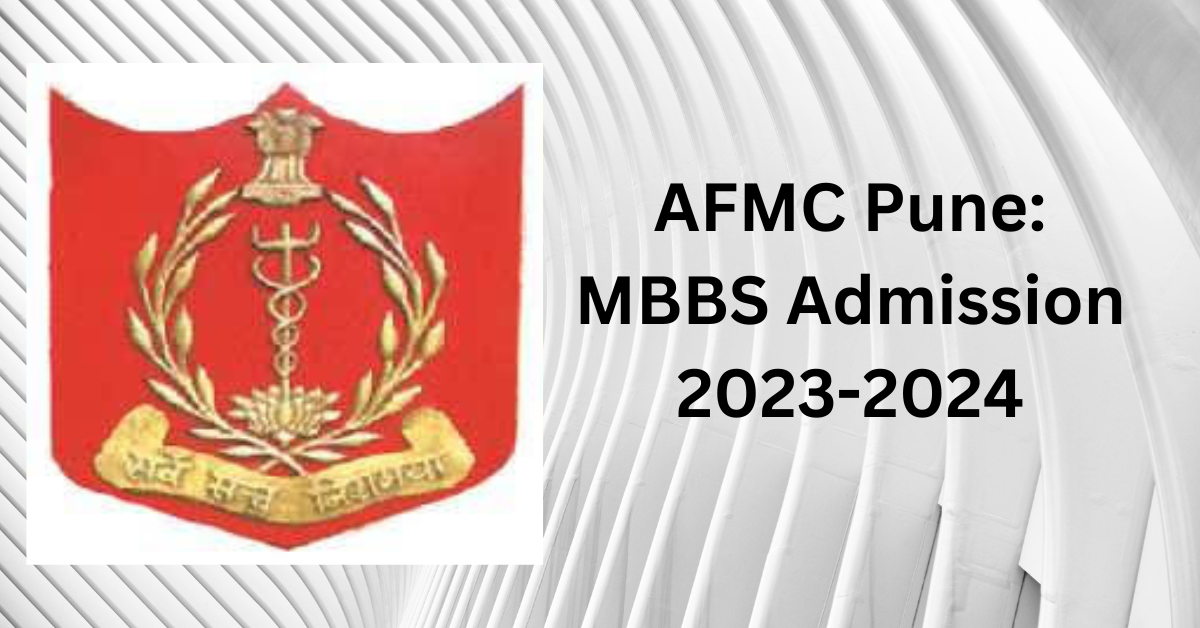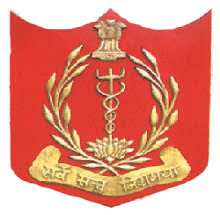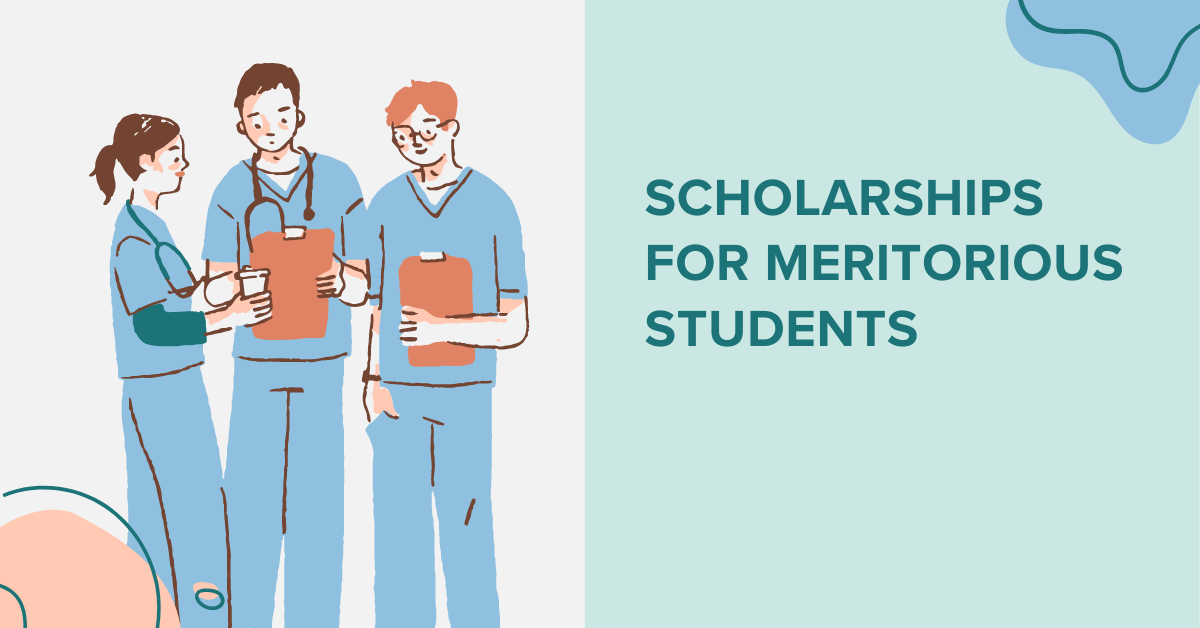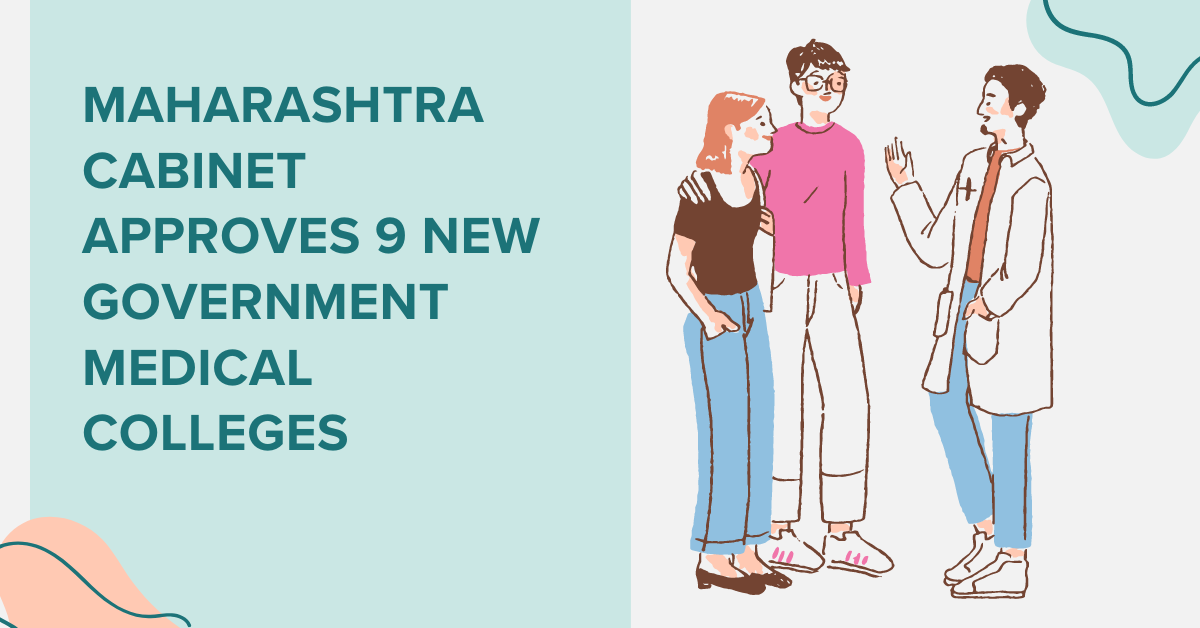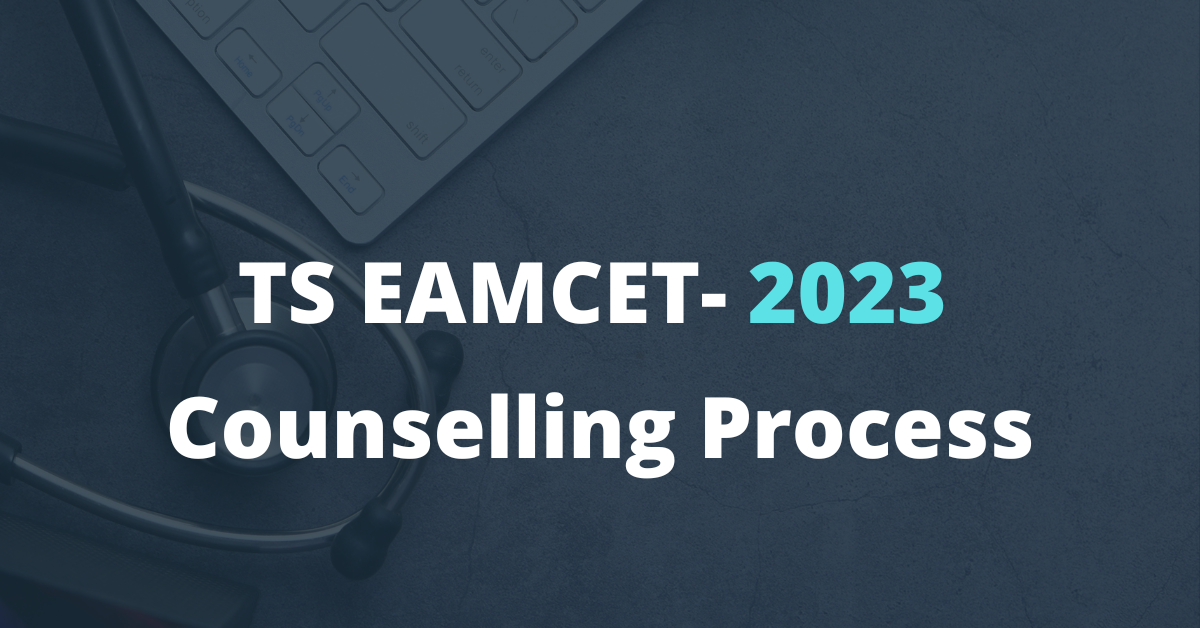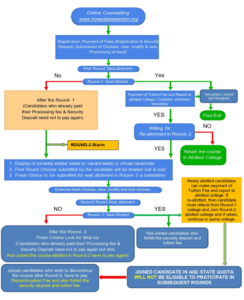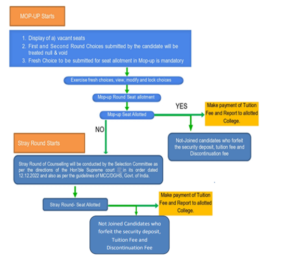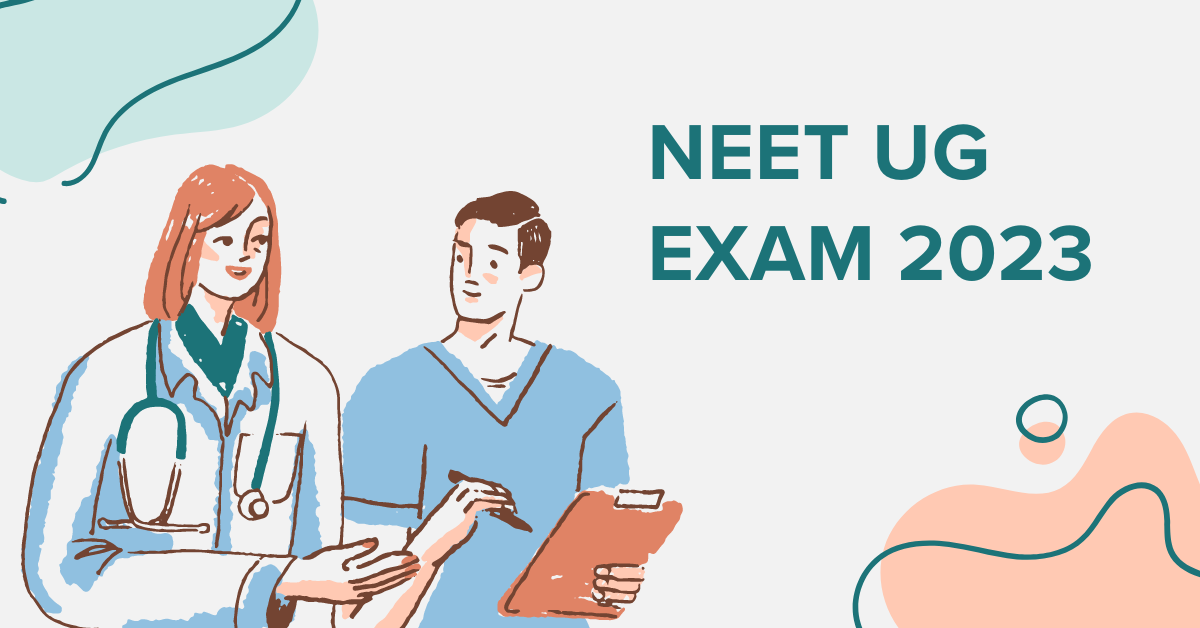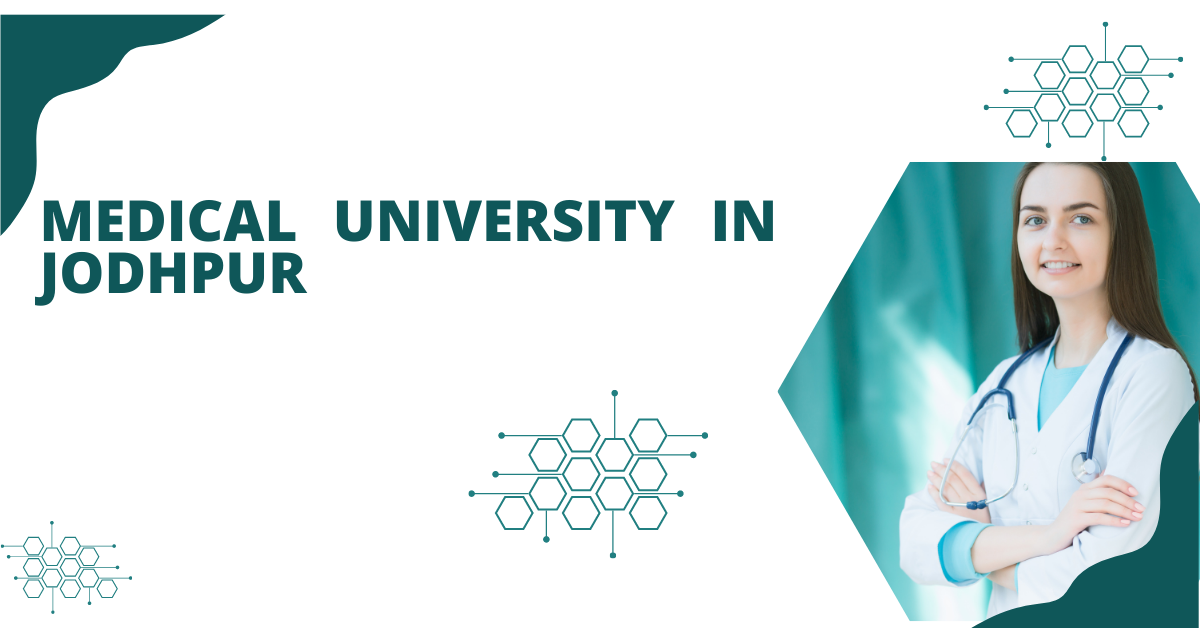AFMC Pune: MBBS Admission 2023-2024
Do you have a strong desire to work in medicine? You’re in luck if you hope to attend the famed Armed Forces Medical College (AFMC) in Pune and work as a doctor. Recently, the AFMC Pune launched its informational brochure for MBBS programme admission for the academic year 2023–2024. We will give you all the information you require regarding the admissions procedure, eligibility requirements, course length, and other topics in this post.
An elite medical school in India that prepares students to work as doctors in the armed services is the Armed services Medical College (AFMC) in Pune. The college provides a thorough MBBS programme that integrates challenging academic instruction with real-world experience. A competitive admissions process and various eligibility requirements must be met by prospective students who want to enrol in AFMC Pune.
Course Length
At AFMC Pune, the MBBS programme lasts for four and a half years. Students must complete a necessary one-year rotating internship training programme after completing the course. At specific service hospitals approved by the National Medical Commission (NMC), medical cadets commissioned into the Armed Forces Medical Services (AFMS) will undergo hands-on training during this internship.
Eligibility Requirements
The following requirements must be met in order for candidates to be admitted to the MBBS programme at AFMC Pune:
- Nationality: The applicant must be an Indian national. Only once they have obtained Indian citizenship or possess a certificate of eligibility issued by the Ministry of Home Affairs, foreign nationals of Indian descent may be admitted to AFMC. The 05 Government-Sponsored Candidates from Friendly Foreign Countries, however, are exempt from this requirement.
- Candidates must be single because getting married while doing the course is not authorised.
- Medical Fitness: Candidates must be in good health and meet the requirements stipulated by the Ministry of Defence of the Government of India (see Appendix “A”).
- Age Requirement: To be eligible, a candidate must be at least 17 years old on January 31, 2023, and not older than 24. The candidate must have been born between January 1, 2000, and December 31, 2006, in other words.
- Candidates from Jammu & Kashmir and Ladakh who reside in Union Territories are also eligible to apply for admission to AFMC Pune.
- Academic requirements: Applicants must have successfully completed one of the qualifying tests indicated below on their first attempt.
- Study of English, Physics, Chemistry, and Biology.
- A minimum of 60% overall in biology, physics, chemistry, and english.
- Not less than 50% in each of the science disciplines, and not less than 50% in English.
- Passed a mathematics test at the tenth standard.
The qualifying examinations include:
- The Higher Secondary (10+2) or equivalent examination in Science from a statutorily recognised Indian University/Board or other examination organisation is one of the qualifying exams.
- English, Physics, Chemistry, and Biology portion of the pre-professional/pre-medical examination.
- First year of three years of degree courses in English, Physics, Chemistry, and Biology at a reputable university.
- After 12 years of school, students must pass the Senior Secondary examination of the Indian School Certificate.
- Maharashtra State Board of Higher Secondary Education’s Higher Secondary School Certificate exam.
- Any other test that is comparable to the Pre-Professional/Pre-Medical Examination of Indian Universities/Boards for Higher Secondary Science.
- A recognised Indian university’s B.Sc. exam.
Please be aware that applicants with particular educational backgrounds, such as Lower Math or Domestic Science, are ineligible. Additionally, applicants who have passed the qualifying exam in a previous attempt or in a compartment exam are ineligible for admission.
Application Procedure
A number of steps are involved in the MBBS programme admission process at AFMC Pune, including:
- Online Registration: During the allotted time, candidates must register online at the official AFMC Pune website.
- Written Exam: Registered applicants must show up for a computer-based exam administered by AFMC Pune. The test evaluates the candidates’ understanding of disciplines like English, Biology, Chemistry, and Physics.
- Interview: Candidates who have been shortlisted will be contacted for an interview and a personality test. This phase assesses the candidates’ readiness for a career in the armed forces overall as well as their aptitude and communication abilities.
- Medical Exam: Candidates who advance to the interview stage will be subjected to a comprehensive medical examination to make sure they fulfil the required medical standards.
- Final Selection and Merit List: The candidates are chosen based on the results of the written test, interview, personality test, and medical examination. Candidates will be admitted in accordance with their placement on a merit list that will be made public.
Seats total and categories
A total of 145 medical cadets will be accepted to AFMC Pune for the 2023 academic year. 115 of these seats are set aside for males, and 30 are designated for girls. Additionally, five (05) NEET(UG) qualifying overseas candidates from friendly foreign nations may be sponsored and chosen by the Government of India through the Ministries of External Affairs and of Defence for MBBS training at AFMC Pune. Furthermore, individuals from the Scheduled Castes/Scheduled Tribes (SC/ST) are only allowed to apply for 10 of the 145 available seats.
Process and Eligibility for Admission
Candidates must pass the National Testing Agency’s (NTA) NEET UG-2023 Examination in order to be admitted to the MBBS programme at AFMC Pune. For the following screening and selection procedures, the NEET Roll No. is an essential element.
The NEET UG-2023 Exam
Candidates who want to work at the AFMC in Pune must take the NEET UG-2023 Exam. The NTA administers a national admission exam for this programme. Candidates’ eligibility for further screening and selection at AFMC Pune is based on their NEET UG-2023 score.
Application and Registration Process
The website www.mcc.nic.in of the Directorate General of Health Services (DGHS) must be used to register and apply for eligible applicants who wish to enrol in the MBBS programme at AFMC Pune. The DGHS offers a registration window, and applicants should frequently check the website for updates and comprehensive information.
Selection and screening
The DGHS will furnish a list of applicants for AFMC Pune following the registration session. The shortlisted candidates will be chosen based on merit for screening at AFMC Pune. These candidates’ NEET Roll Numbers will be visible on the official AFMC Pune website, which can be found at www.afmcdg1d.gov.in and www.afmc.nic.in.
A total of 1880 applicants (1490 boys and 390 girls) will be called for the AFMC Pune screening procedure. On the aforementioned websites, you may get information about the shortlisted candidates as well as the screening schedule. It is vital to note that requests for interview date modifications won’t be granted unless absolutely necessary.
Test of English Language, Comprehension, Logic, and Reasoning (TOELR)
A Test of English Language, Comprehension, Logic, and Reasoning (TOELR) will be administered to the shortlisted candidates. At AFMC Pune, this exam would be given in a computer-based style. There are 40 multiple-choice questions (MCQs) in total, each worth 2.0 marks. The TOELR test has a 30-minute time limit, and there will be a 0.5 penalty for each incorrect response.
Interview and the Psychological Assessment Test (PAT)
The stages of the Psychological Assessment Test (PAT) and Interview shall follow the TOELR for the candidates. The interview panel will evaluate the applicants based on a number of criteria, such as general awareness, knowledge, interests, hobbies, and personality. The selection committee will also take into account candidates’ involvement in extracurricular activities including athletics and NCC (National Cadet Corps), as well as their family’s history of military service.
The performance of the applicants in the written exam, interview, and other factors will form the basis of the final merit list. The PAT score is a prerequisite exam and will not be taken into account for the final merit ranking.
Examining Medical Records and Reviewing Documents
Candidates that pass the screening, TOELR, PAT, and interview phases will then go through a thorough medical test. The medical evaluation meets the requirements established by the armed forces. The official AFMC recommendations, paragraphs 46 to 49, define the medical examination procedure in depth.
Candidates must present their genuine NEET UG-2023 admit card, mark sheets from the prerequisite test, and any other required papers listed in the joining instructions during the document scrutiny phase. Candidates will have their candidature cancelled if they do not submit their results and mark sheets by the deadline for admission.
Service Bond and Liability Agreement
Candidates accepted to the AFMC’s MBBS programme must serve in the Armed Forces Medical Services as Commissioned Officers. The kind of commission given to the candidates will depend on the positions open and their performance on the final MBBS exam using the merit-cumulative option. Additional information about the requirements and time frame for service is provided in the Service Liability & Bond Agreement.
Seats for candidates from SC/ST
Candidates from the Scheduled Castes/Scheduled Tribes (SC/ST) category may apply for up to 10 of the 145 available seats at AFMC Pune. SC/ST students must meet a number of requirements, such as applying to AFMC Pune and passing the NEET UG-2023 written test, in order to be eligible for these seats. Additionally, they must satisfy the same requirements as non-SC/ST candidates in terms of age, academic ability, and physical health.
Examination and Verification of Documents
When invited for admission, candidates must bring their genuine NEET UG-2023 admit card, mark sheets from the prerequisite test, and other required documentation. Their candidature will be withdrawn if they fail to provide these documents. Candidates who are awaiting the results of the qualifying exam are not eligible for provisional admission.
It is crucial to remember that any inconsistency or submission of documents that are either fake or authentic will result in the selection or admission of the candidate being immediately revoked.
Reporting and The Waiting List
Along with the merit list, AFMC Pune will also publish a waiting list. As openings arise, seats will be offered to waitlisted candidates in descending order of merit. Candidates should be ready to arrive in Pune quickly for admission and remain there until all openings have been filled.
AFMC Pune: A Prestigious institution
AFMC Pune is well known for its top-notch facilities and great academic programme. Here are some crucial characteristics that set AFMC Pune apart for prospective medical professionals:
AFMC Pune has a well-established infrastructure that includes state-of-the-art facilities including fully-stocked labs, libraries, lecture halls, and hospitals to give students a comfortable learning environment.
Experienced faculty: The college has a group of highly qualified and experienced professors who give the students thorough theoretical education and hands-on training.
Opportunities for Research: AFMC Pune places a strong emphasis on research and encourages students to work on creative projects and conduct scientific research, establishing an intellectually stimulating environment.
Military Training: The Armed Forces Medical College (AFMC) Pune trains its students in the military, emphasising discipline, leadership abilities, and a feeling of purpose.
For ambitious medical students who are enthusiastic about joining the armed services, attending the Armed services Medical College (AFMC) in Pune is a great opportunity. The AFMC Pune provides an excellent platform for people to pursue their aspirations of becoming medical professionals because to its illustrious reputation, extensive curriculum, and first-rate facilities.




















